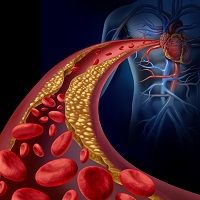Evaluating Hyperlipidemia Risk in Patients with Anxiety Disorders
Do patients diagnosed with anxiety disorder experience a greater burden of metabolic disorders such as diabetes and hyperlipidemia?

Previous studies have shown that the prevalence and incidence of diabetes is much higher among patients with anxiety disorders than in the general population.
To see if the same holds true for hyperlipidemia, researchers in Taiwan accessed a database from the National Health Research Institute that included medical records of more than 1,000,000 patients, and obtained a random sample of 766,427 adult (age 18 years and older) patients who had at least two claims in the previous year for ambulatory or inpatient care for a diagnosis of anxiety disorder.
They also identified all patients in the sample who had a primary or secondary diagnosis of hyperlipidemia or who had been treated with anti-hyperlipidemia medications in the previous year.
Using multiple logistic regression adjusted for other covariates (including age, sex, insurance level, geographic region, and “urbanicity”), they assessed the differences in the prevalence of hypertension between patients with anxiety disorders and the general population.
They reported that “the prevalence of hyperlipidemia in patients with anxiety disorders was higher than that in the general population (21.3% vs. 7.6%, odds ratio, 2.14; 95% confidence interval, 2.07—2.22).”
Their analysis revealed that patients with anxiety disorders had a higher prevalence of hyperlipidemia across all ages, sex, insurance level, geographic region, and urbanicity.
Based on this, they concluded that “patients with anxiety disorders had a higher prevalence of hyperlipidemia than the general population. Age, antipsychotic use, mood stabilizer use, diabetes, hypertension, and urbanicity were risk factors for hyperlipidemia in patients with anxiety disorders.”